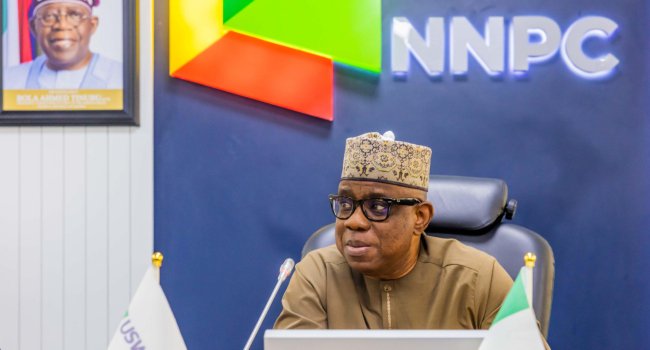THE ongoing tension between the National Assembly and the Nigerian National Petroleum Company Limited (NNPCL) escalated further on Thursday as the Group Chief Executive Officer, Bayo Ojulari, once again failed to honour a summon by the Senate Committee on Public Accounts.
This marks the second time in recent weeks that Ojulari has refused to appear in person to address pressing questions surrounding over ₦200 trillion in unaccounted-for funds highlighted in the company’s audited financial statements.
Instead of presenting himself before the lawmakers, Ojulari sent a team of company representatives, which the Senate committee swiftly rejected, stating that only the GCEO himself could respond to the gravity of the issues under scrutiny.
The committee, led by Senator Aliyu Wadada (Nasarawa West), described Ojulari’s repeated absence as “a blatant show of disregard for legislative authority” and a deliberate obstruction of their constitutionally mandated oversight role.
“This is not just a procedural lapse; it is a direct affront to the powers of the Senate,” Senator Wadada declared during the tense session.
“We are talking about ₦200 trillion, an amount that is nearly 10 times the size of Nigeria’s entire 2024 federal budget. This is not a matter that can be delegated.”
The Senate had earlier issued a 10-day ultimatum to the NNPCL boss to appear before the panel and provide clear, documented answers to 11 critical audit queries, ranging from unremitted revenues and opaque contract payments to irregularities in subsidy claims and operational expenses.
With Ojulari’s nonappearance now drawing serious criticism, the committee hinted at the possibility of invoking the constitutional powers granted under Section 89 of the 1999 Constitution, which allows the Senate to issue arrest warrants or sanctions against public officials or corporate heads who fail to comply with lawful summons.
“We are not helpless,” said another committee member, Senator Okechukwu Nwankwo.
“This continued nonchalance from the NNPCL CEO is dangerous to transparency and public accountability. We may be forced to take more drastic measures.”
The lawmakers also pointed out that NNPCL is now a limited liability company, but that does not exempt it from statutory accountability, especially when it remains the custodian of national strategic oil assets and a major revenue-generating institution of the Nigerian state.
The Senate Committee’s probe was triggered by the recent audited reports presented by the Office of the Auditor-General of the Federation, which flagged massive inconsistencies and unexplained expenditures in the NNPCL’s books.
Although details of the queries have not been fully disclosed to the public, sources within the committee say the probe involves:
Allegations of missing or misappropriated subsidy funds from 2015–2023
Unexplained upstream joint venture disbursements
Contract overpayments and non-competitive procurement practices
Huge foreign exchange losses and discrepancies in royalty remittances
Failure to remit dividends and taxes to the federation account
“The magnitude of these issues goes beyond mere accounting errors,” Senator Wadada noted.
The repeated refusal by a high-profile executive such as Bayo Ojulari to appear before the Senate has triggered public concern over corporate impunity, especially in sectors handling public funds and national resources.
Civil society groups and anti-corruption activists have called on President Bola Tinubu to intervene and ensure full cooperation from NNPCL’s leadership.
“This level of opacity is unacceptable,” said Adeola Akinyemi, of the Nigerian Tax Justice Coalition.
“The Senate must insist on accountability, and Nigerians deserve to know where their oil money is going.”
The Senate Committee is expected to issue a final summons date for Ojulari next week. Failure to appear may lead to escalated consequences, including a possible motion on the Senate floor to compel his appearance via the Sergeant-at-Arms.
Whether Ojulari will finally appear before the Senate or continue to rely on proxies remains to be seen. What is certain, however, is that the public patience is wearing thin, and lawmakers appear determined to get answers on the mysterious ₦200 trillion.







